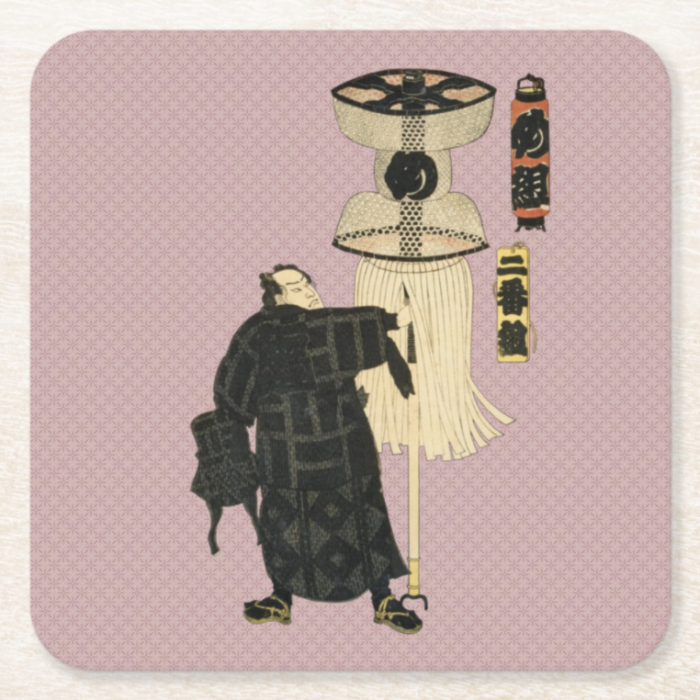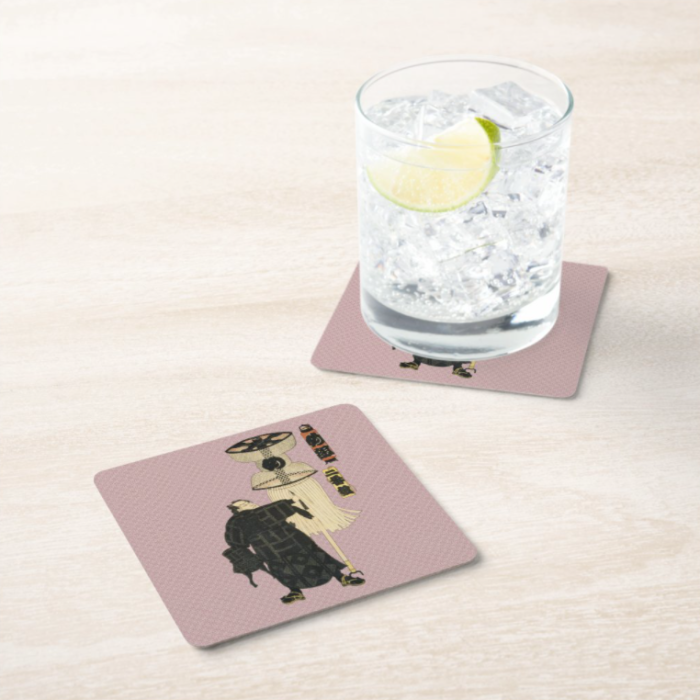■Product image
■About This Design
Edo no Hana Kodomo Asobi “Nibankumi-Megumi” Square Paper Coaster
Most of the Japanese buildings were made of wood, so the towns of Edo from the 17th century to the 19th century were often hit by big fires.
At that time, the fire fighting method was destruction, which means to prevent the spread of fire by destroying the houses around the fire site. However, at the beginning, there was only a fire brigade organized by samurai who knew little about house structure, so it was difficult to destroy houses efficiently.
In addition to the samurai fire brigade, a new brigade called “Machi-bikeshi” was formed by the townspeople in 1658. Most of the members of “Machi-bikeshi” were construction workers called “Tobi”, who specialized in working at high places, so they were able to demolish houses efficiently because of their familiarity with the house structure.
“Machi-bikeshi” consisted of subgroups: “Iroha-gumi”, that had 48 squads, and three other groups, “Kita-gumi,” “Naka-gumi,” and “Minami-gumi.” The west side of Sumida River was taken care of by “Iroha-gumi”, and the east side was covered by “Kita-gumi”, “Naka-gumi”, and “Minami-gumi.” Each group used “matoi” and “nobori” as symbols of the group.
This design is based on Ukiyo-e possessed by the National Diet Library in Japan. It is the nishiki-e (colored woodblock print), titled “Edo no Hana Kodomo asobi”, made by Yoshitora Utagawa, an ukiyo-e artist around 1858. This picture on the product shows a firefighter of “Nibankumi-Megumi”, a squad in “Iroha-gumi”.
In the past, nishiki-e such as firefighters and bijin-ga (beautiful women) were popular as souvenirs of Edo town.
The “Hikeshi” were vigorous and seemed to be easily ignited for a fight at the time. “Tobi-guchi”, one of the firefighting tools used by “Hikeshi”, was sometimes used for fights, so its length was limited by the Edo Shogunate.
“Megumi no Kenka”, where sumo wrestlers had a big fight with “Megumi Tatsugoro”, became a big uproar involving not only the town of Edo but also the Edo Shogunate.
Prices For current prices, please refer to the Rigel shop site below.

